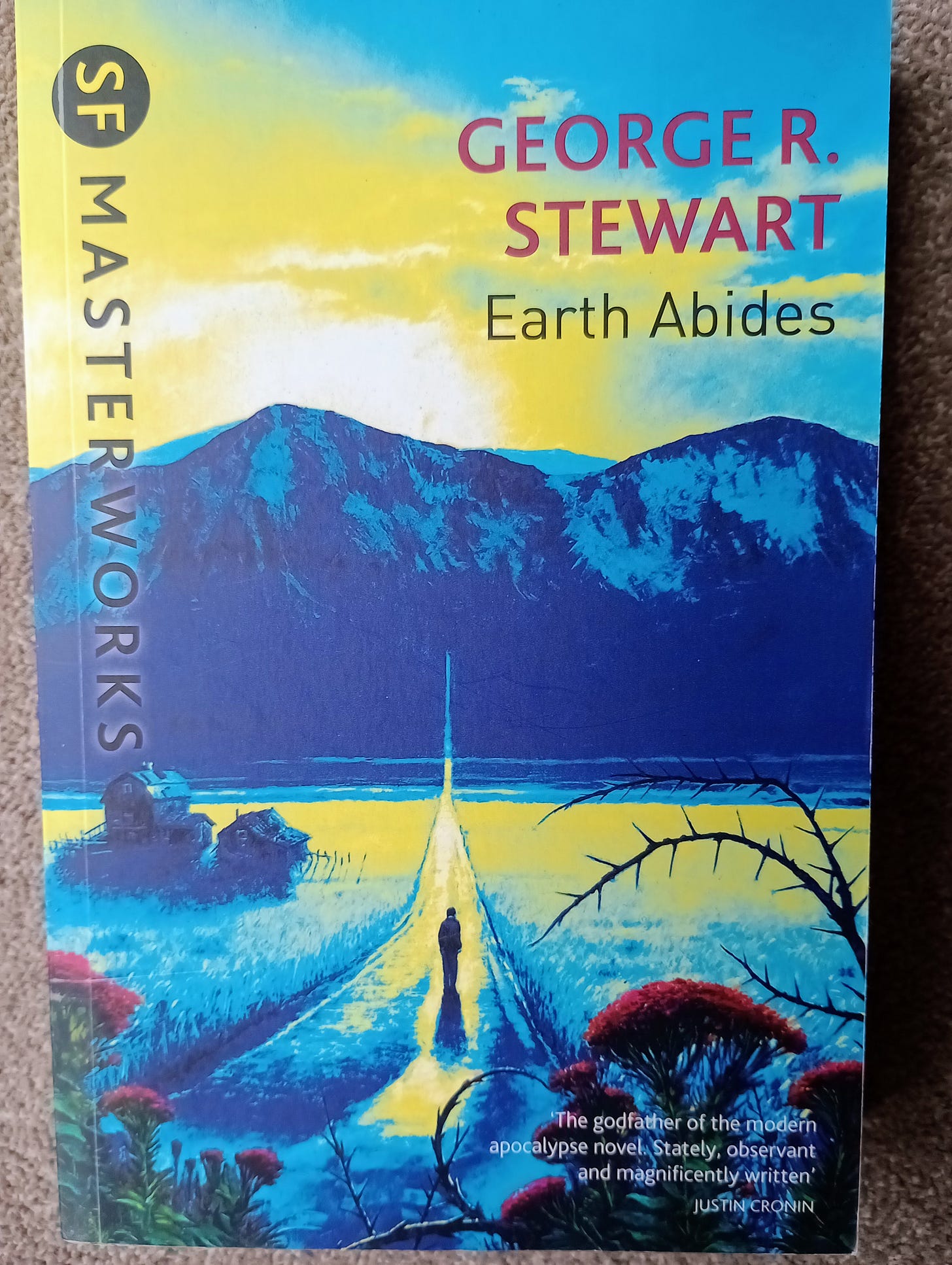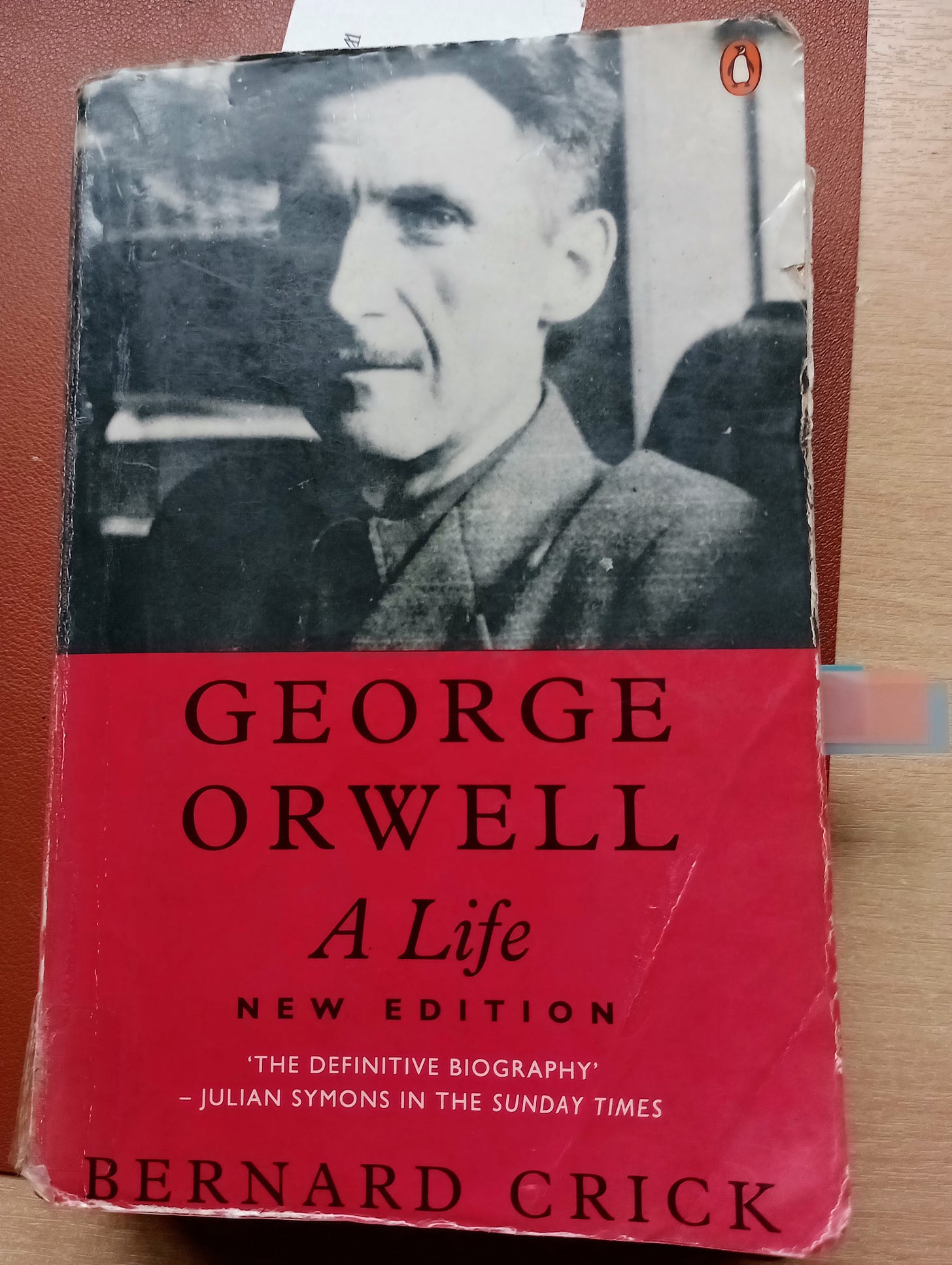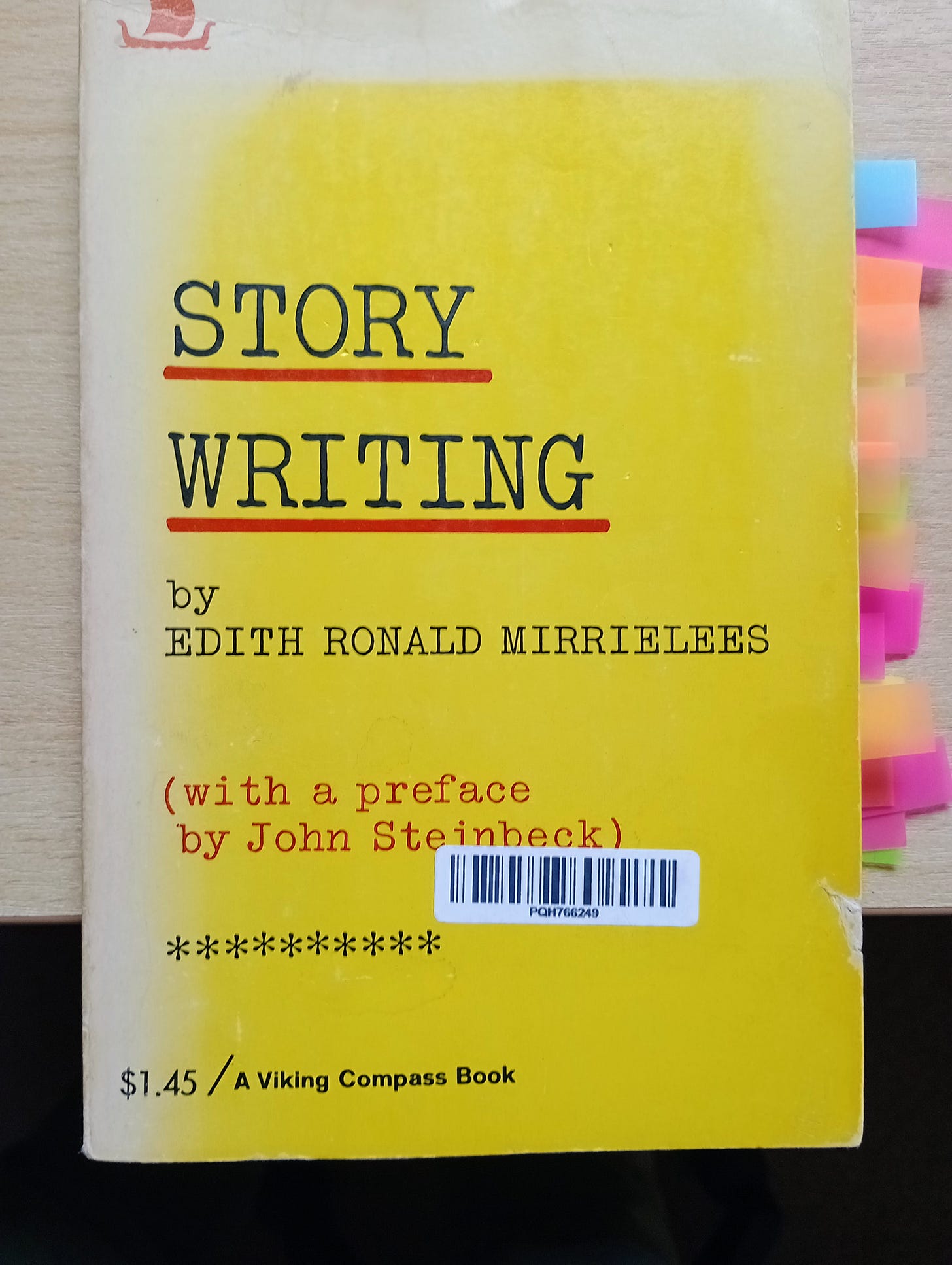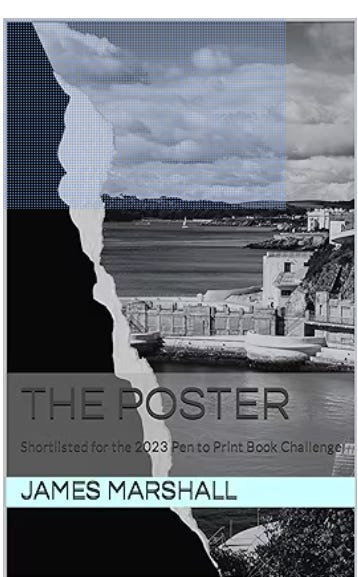Easter reading recommendations
My favourite books read so far this year.
A beautifully written classic
As it’s Easter this week (hence the newsletter coming out a day early), I thought I would briefly review the books I’ve read this year. I’ve still not caught up with all the books on my Tsundoku shelf: as fast as I read one good book, another one pops up.
After avoiding dystopian books whilst writing, The Poster, I've read three good ones this year plus a couple of ‘sunny’ popular books that have been made into TV shows.
I had a fun interview with Angela Kalwaites on Radio Devon and Radio Cornwall last week. I thought she called me a ‘half-arsed fool’ at one point! You can listen to it here (1 hour 49 minutes into the show).
Best Fiction book:
‘The Earth Abides’ by George Stewart. I love how simple this story was but beautifully written. It has a sense of optimism in a post-apocalyptic world: a sort of cosy dystopia. It’s set in San Francisco with several road trips around the USA.
It shows how life changes across several generations with the protagonist being the last survivor who remembers life before the disaster.
Honourable mention to ‘All the Light We Cannot See’ by Anthony Doerr. Not the type of book I would pick up but my daughter recommended it. I'm glad I took her advice: it starts slowly but builds up and has a great ending.
Best Non-Fiction Book:
George Orwell: A Life by Bernard Crick.
I whizzed through these 600 pages, reading at every opportunity. It is well-referenced and draws on Orwell’s extensive writings, as well as from reviews and letters from friends, colleagues and complainers. If you like Orwell’s writing (and who doesn’t?) then I suggest you read this. He is one of the finest exponents of precise written English there is.
Honourable Mention to ‘ The Forgotten Girls’ by Monica Potts. A heart-warming/ heart-breaking account of growing up in rural Arkansas. Potts uses her journalistic skills well. (For UK readers, see also, ‘ There Is Nothing For You Here’ by Fiona Hill which tells a similar tale about County Durham.)
Best for Writers:
Story Writing: Edith Ronald Mirrielees.
Sublime advice that is offered like an iron fist inside a soft glove of humour. Mirrielees was Steinbeck’s teacher at Stanford and he turned out pretty well. Small and compact and punching above its weight. I loved it.
The full list is below.
But, if you haven’t bought The Poster yet (and why on earth are you subscribing to my newsletter otherwise?) now is a good time. Enjoy it over Easter.
Thanks to Andy for leaving a review on Amazon and Mandi for buying three copies for her friends.
Books 2024
1. Story Writing: Edith Ronald Mirrielees. It is a sublime book by Steinbeck's teacher at Stanford. I made a tonne of notes and will use this as a reference for my work this year. Not one for beginners.
2. The Silent Multitude: D.G. Comptom. A dystopian novel that reads almost like a play about four main characters (and a cat) in a crumbling Gloucester. Enjoyable.
3. In Search of the Dark Ages: Michael Wood. Filled a gap in my knowledge: I knew little about this period of British history.
4. Lessons in Chemistry: Bonnie Garmus. An entertaining, page-turning novel that seems like a wish-fulfilment for the oppressed women in the 1950s and 1960s.
5. The Life of Arthur Ransome: Hugh Brogan. A comprehensive look account of one of my favourite childhood authors' life in Russia and England. It shows the torment of his ravaged body and also the stress of his writing and self-doubt.
6. The Pearl: John Steinbeck. A folk-tale novella that was a joy to read.
7. The Hunted: Elmore Leonard. Short, punchy novel about a US Marine getting involved in a crime payback in Israel.
8. Orbital: Samantha Harvey. Literary, short novel about six astronauts orbiting around Earth. Nothing much happens: it's more of an ode to our fragile planet and what damage we're doing to it.
9. Solutions for Novelists: Sol Stein. Useful ideas based on his experience although he seems prejudiced against thriller writers!
10. Kaputt: Curzio Malaparte. A curious mix of novel, literary fiction and eye-witness account of atrocities committed in WWII. Deeply unpleasant in places and whimsical in others.
11. From Our Own Fire: William Letford. I read this in one sitting. What a unique idea: the writing sets up the poems that set up the writing. AI takes over the world and leaves a family group in the wilderness.
12. Being Mortal: Atul Gawande. A series of case studies, including his father, of how elderly people manage their ageing process and end of life. We all die, but having some quality of life is possible.
13. Sweet Thursday: John Steinbeck. A humorous novel that starts slow but builds into an interesting romance.
14. The Foundation Pit: Andrey Platonov. I found this a tough read the first time. I read the notes and the afterword and started it again immediately. I enjoyed it the second time around and was glad I made the effort. A grim tale of peasants in the Soviet Union dealing with Stalin's collectivisation.
15. Earth Abides: George R. Stewart. A masterful post-apocalyptic novel set in California. It is almost a cosy-dystopia, following the life of one man and his gathering tribe. The prose is excellent and the dramas of family life are well documented.
16. Store of the Worlds: Robert Sheckley. A collection of SF short stories from the 1950s/60s. They remind me of John Cheever's work: some suburbian middle-class loser stumbles across something fantastic. There are also stories set in Space. Entertaining and well-written.
17. Tinker-Tailor, Soldier-Spy. John le Carre. The opening chapter is one of the best I've read (I declare a personal bias because it is set in the foothills of the Quantocks). The story becomes convoluted and I lost the plot in a few places but it is entertaining and rich in detail.
18. The Last Good Kiss: James Crumley. A decent private detective novel set in the western half of the USA. I don't know how the protagonist stayed alive with the amount of drinking he did.
19. How the Dead Live: Derek Raymond. A short crime novel, written in the mid-80s, that hasn't aged well. Some good parts that tick along and others where the author appears to be trying too hard.
20. All the Light We Cannot See: Anthony Doerr. A sad and poignant novel about young people caught up in World War 2 and their relatives. Full of detail and human tragedy with moments of hope and love. A great ending too.
21. First Man. James R. Hansen. Dull biography of Neil Armstrong. The first 100 pages read like a Wikipedia entry: a list of facts and events without any real insight into the character of Armstrong. I pushed on because I'm interested in the subject matter. The middle portion about the moon landing is the best.
22. The Dark Light Years: Brian Aldiss. A turgid read with a few clear parts. The worst Aldiss novel I have read.
23. George Orwell: A Life: Bernard Crick (1992 edition) . A great biography of one of my favourite authors. It is detailed and written with insight, and some humour and is well-referenced. I read this at every opportunity.
The Forgotten Girls: Monica Potts. A case study of poverty in rural Arkansas uses the story of two friends whose lives part and have different outcomes to highlight the despair found in many communities. Apart from the Evangelical Christianity, many points are relevant to rural/coastal towns in the UK.
If you have any recommendations, please leave them here.





